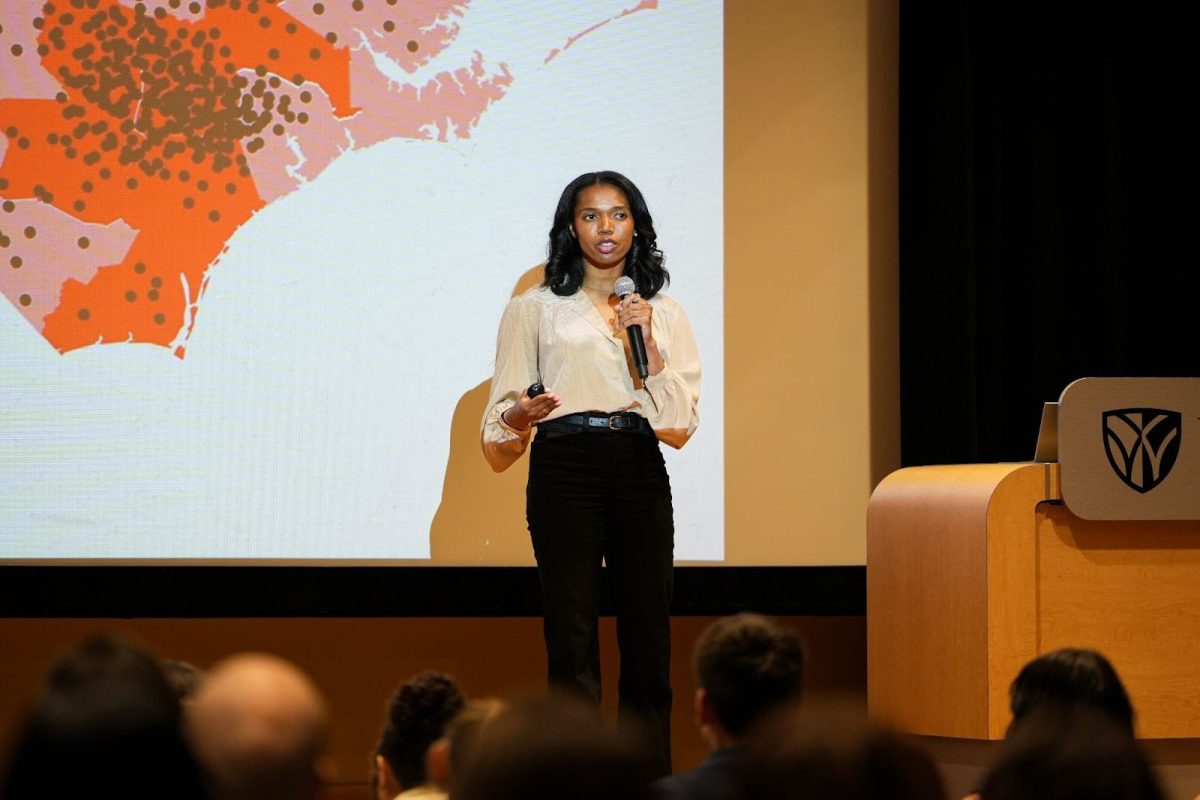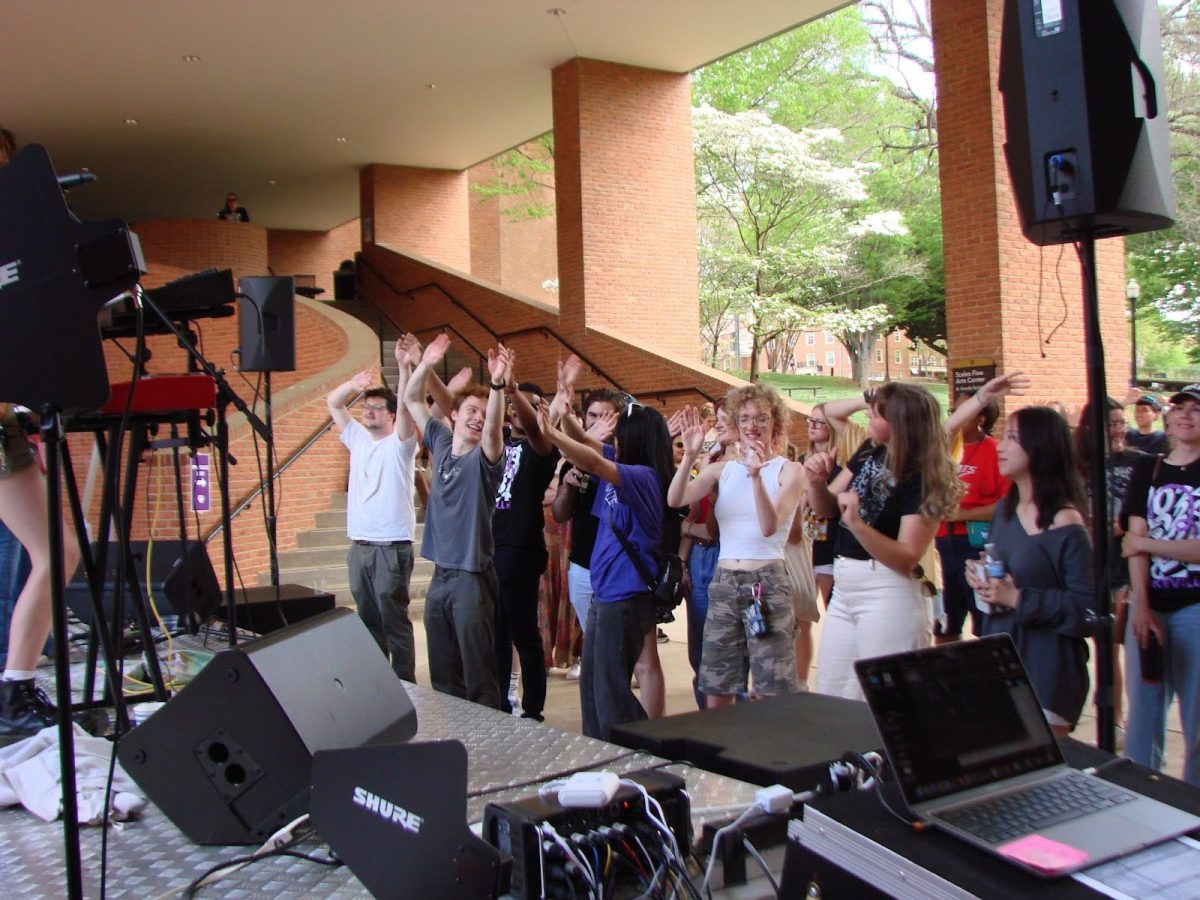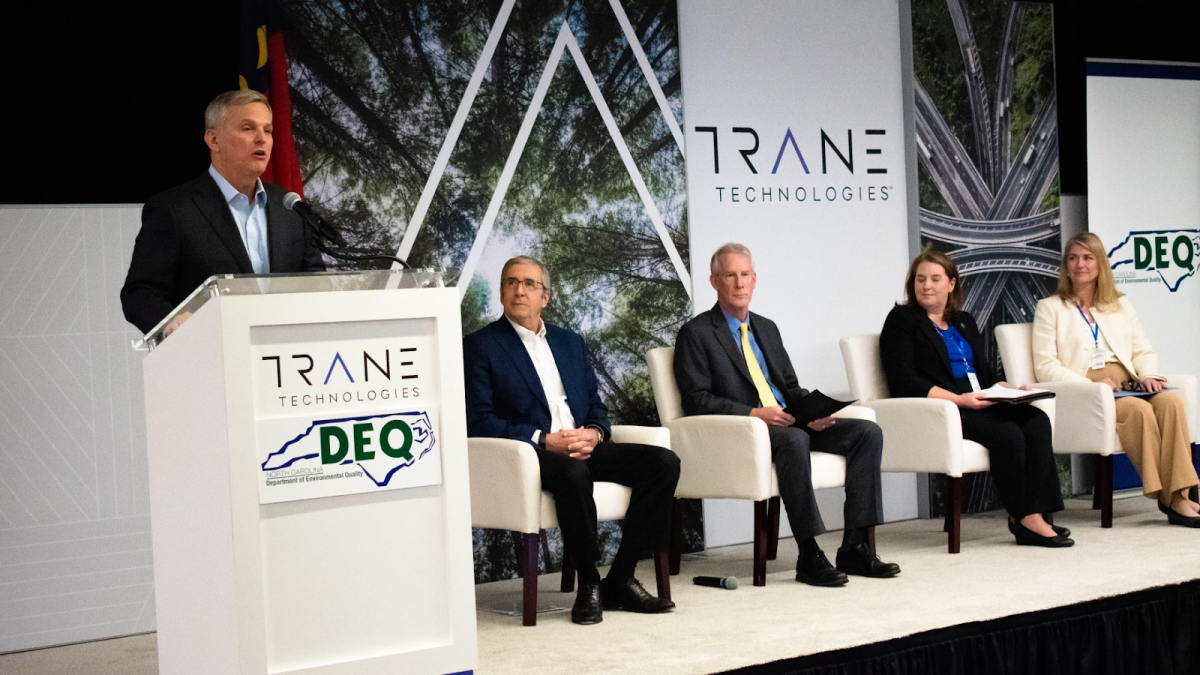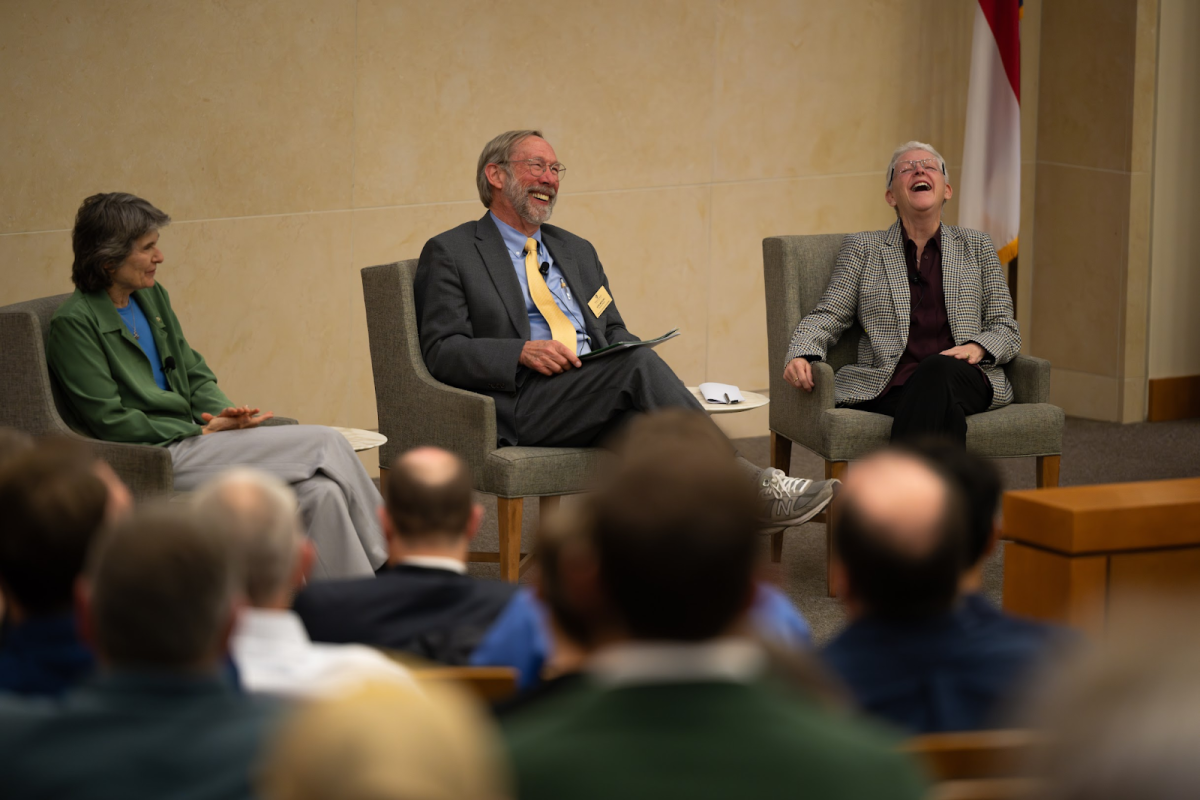In the words of accredited author Chimamanda Adiche in her mini book We Should All be Feminist, “Gender as it functions today is a grave injustice. I am angry. We should all be angry. Anger has a long history of bringing about positive change. But I am also hopeful because I believe deeply in the ability of human beings to remake themselves for the better.”
This belief in humanity’s ability to work towards the betterment of their communities is rooted in environmentalism and professor Alexandra Von-Burg’s work.
Hailing from a small town in the countryside of Italy, her research as a faculty member in the Department of Communication is focused on citizenship, immigration and mobility, emphasizing how non-citizens can contribute to their new communities.
“It’s personal because I’m an immigrant and a noncitizen here, and there are many ways to contribute to where you go,” Von Burg said. “This has led me to these last few years with Dr. French and a few other graduate and undergraduate students who really focus on fashion and nature, and to me, there was a great way to connect my love for community engagement.”
She was referring to her communication and environmental studies class, “Rhetorics of Fashion and Sustainability,” which began as an independent study examining the discourse of why students wear what they wear through angles of identity, labor and environmental justice.
When she joined the Wake Forest community 19 years ago, Von Burg quickly noticed the wealth disparities present in the Winston-Salem community that impact all aspects of life – including fashion. Her observations of the [disparities] indicated a need for a community partnership.
In 2018, the Chic Shack of North Forsyth High School came to life.
The Chic Shack project was designed to provide free, second-hand clothing to students at North Forsyth, a Title I institution, who often do not have access to new, proper-fitting clothing that fits the fashion trends of the day.
The main project of Von Burg’s class is helping to promote, stock and organize the Chic Shack for North Forsyth High School to connect the classroom to the community.
“The community partnership with a high school was for us perfect, because it did put a focus on Wake students, but it also brought it back a little bit to the high school years, which for us, you know, we all agree that they are such important years for the developing who you are and your identity and style” Von Burg said.
The Chic Shack is an embodiment of sustainable fashion and environmental justice as it encourages a focus on the circular lifespan of clothes while addressing the challenges low-income, black and brown students face in Winston-Salem.
“The work through the classroom and the community projects is all about using clothes that are already there and finding them a new home,” Von Burg said. “It’s really about pausing, slowing down, appreciating what we already have — which is a lot — and just reshaping our habits and rethinking what impacts the world”.
Nurturing people and the planet
Von Burg’s remarkable consciousness of the needs of her community can be attributed to women in her family.
A teacher, a wife and a mother, she fondly recalls her grandmother’s care for the whole community. She described how her grandmother always shared fruits and vegetables from her home garden, believing that abundance should benefit everyone.
This quiet act of giving — rooted in sustainability — shaped her understanding of what it means to nurture both people and the planet.
“This currency of care is really about resisting the temptation of consumerism and capitalism and competition, all these things that make you feel like you have to compete for the best deal or buy something before it’s out,” said Von Burg.
She incorporates this practice into every facet of her work. Using examples like the Chic Shack project, Von Burg emphasizes interconnectivity in her sustainability classes to teach her students the value of community care.
“When I teach environmental issues, it’s impossible to teach like it’s only the environment,” said Von Burg. “It’s a bigger scale because you’re not just talking about the impact on yourself but also the larger impact that even a T-shirt can have on other people. It’s about caring for yourself and also caring for others.”










